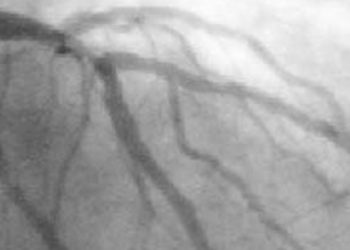Postoperative supplemental oxygen in liver transplantation not associated with reduced infection risk
1. Among patients who underwent liver transplantation, a higher level of postoperative supplemental oxygen was ineffective in reducing risk of infection.
Evidence Rating Level: 1 (Excellent)
Study Rundown: Post-surgical infections continue to be an important health care issue due to their incidence and dire impacts on patient outcomes. Perioperative international practice guidelines delineated by the World Health Organization (WHO) include the provision of 80% fraction of inspired oxygen (FiO2) post-operatively to all adults. Post-operative infection is particularly concerning in the context of transplantation due to immunosuppression. Hyperoxygenation is suggested in order to increase tissue oxygen tension which can ultimately kill neutrophils through oxidation and augment the body’s natural immune response. This randomized controlled trial aimed to evaluate the efficacy and safety of providing high FiO2 to liver transplant recipients in the immediate post-transplant period. A total of 193 participants planned to undergo liver transplantation without any active infection, malignancy, cardiac arrest during transplantation, or acute myocardial infarction were included. Participants were randomly assigned to receive either 80% or 28% FiO2 for six postoperative hours. The primary outcome assessed in this study was the occurrence of infection in the 30-day postoperative period. All patients received antibiotic prophylaxis. The results of this paper showed that patients who were randomized to receiving 80% FiO2 more frequently developed severe complications and had longer intensive care unit admissions. No significant differences were identified with respect to mortality, duration of hospital stay, and liver function. As such, this study does not support the use of postoperative hyperoxygenation for infection prophylaxis after liver transplantation.
Click here to read this study in BMC Medicine.
In-Depth [Randomized Controlled Trial]:
The present study used data from adult participants who were planned to undergo liver transplantation. Patients were excluded if they had active infection, malignancy, cardiac arrest during transplantation, chronic obstructive pulmonary disease, or acute myocardial infarction. Participants were randomly assigned to either receiving 80% FiO2 or 28% FiO2 for six postoperative hours. Patients and outcome assessors were blinded to the assignment. Regardless of the assignment, FiO2 could be increased in order to ensure there was an arterial oxygen saturation of greater than 92%. The primary outcome that was assessed in this study was the occurrence of infection in the 30-day postoperative period. Secondary outcome measures included 90-day postoperative mortality, duration of postoperative hospital and intensive care unit admission, pulmonary complication, and liver function as determined by liver enzymes and international normalized ratio (INR). All patients received antibiotic and antifungal prophylaxis. All transplantation procedures utilized deceased donor livers, utilizing the entire organs after brain death. Statistical analyses included a logistic regression model. The results of this study showed that participants belonging to the 80% FiO2 group more frequently developed severe complications and had longer ICU admissions than participants in the 28% FiO2 group (24% vs 23.2%). No significant differences were found with respect to patient mortality or pulmonary complications. This study ultimately concludes that patients should not receive postoperative hyperoxygenation for infection prophylaxis following liver transplantation, due to lack of efficacy. However, there are several limitations in this study that should be noted, in order to improve future methodologies. For instance, as this study was conducted in a single center, this may impact the generalizability of these results to a broader population. As well, there were some deviations from the FiO2 percentage that were identified due to initial inadequate oxygen saturation. Interestingly, the findings of this study were contrasting to prior investigations done regarding hyperoxygenation in the context of transplantation. As such, future studies investigating postoperative hyperoxygenation should be conducted, taking these limitations into consideration.
Image: PD
©2023 2 Minute Medicine, Inc. All rights reserved. No works may be reproduced without expressed written consent from 2 Minute Medicine, Inc. Inquire about licensing here. No article should be construed as medical advice and is not intended as such by the authors or by 2 Minute Medicine, Inc.






